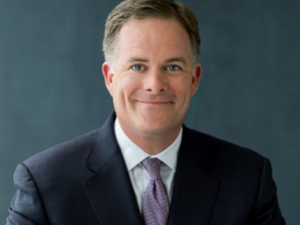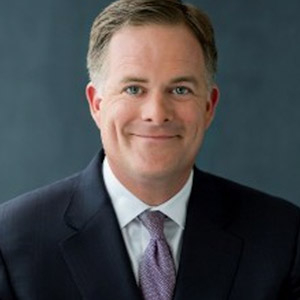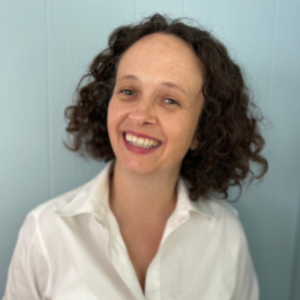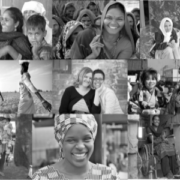Jack Ginter, President, Abbot Downing, a boutique wealth business of Wells Fargo Wealth and Investment Management
 “Nobody does it alone. Strong relationships are critical. The biggest thing men can do, is engage in the topic, be a mentor and a mentor who becomes a sponsor is even better,” says Jack Ginter, President of Abbot Downing.
“Nobody does it alone. Strong relationships are critical. The biggest thing men can do, is engage in the topic, be a mentor and a mentor who becomes a sponsor is even better,” says Jack Ginter, President of Abbot Downing.
Ginter recognizes that mentors and sponsors including “two very strong women” were the people willing to speak up for him on his behalf throughout his career. He has been in wealth management for more than 25 years and risen through the ranks having client facing, portfolio experience as well as significant management experience. Ginter was part of the team that founded Abbot Downing in 2012 merging three businesses previously known as Calibre, Lowry Hill and Wells Fargo Family Wealth and now manages employees and serves clients across all 50 states.
Ginter is inspired to lead from the front on creating an inclusive workforce that runs on meritocratic principles. Personally, he is passionate to build opportunities for talented women, and is motivated to use his voice, power and position to drive change.
Ginter wants to ensure that everyone gets the chance to understand that diversity is a topic for everyone and encourages everyone to do the work that is needed to clear the deck for honest conversations.
“We have spent time here at Abbot Downing on unconscious bias and what microaggressions are. Men have to engage as allies and really dig deep into the topic to move the needle.”
He urges women to seek out men who get it. Engaging with others who want to embrace the talent within the organization is essential to personal and professional growth.
“I have a daughter who is 19 and I have nieces that I want to have opportunities different than a decade ago. We have incredibly talented women on my current team who I want to see succeed and get to the next level. These women have had a significant impact on our business and the wealth industry. I believe the success of our business depends on contributions from individuals who have different perspectives and innovative ideas.”
Jack participates in supporting women and creating change as an adviser to the Wells Fargo Women’s Team Member Network, a program that is committed to building a diverse and inclusive culture at Wells Fargo for women through personal and professional development, mentoring, leadership engagement, networking and community outreach opportunities.
He is a member of the Diversity and Inclusion Council which spans all Wealth and Investment Management. He recounts how years ago, a female mentor of his team told him something that stuck with him.
“She told me that if I had a voice that has power, I have to use it. I have never forgotten that. Sometimes it is not easy to have uncomfortable conversations but men need to be engaged in the conversation. It is hard to own the fact you might have had privilege, but the overarching message here is that you have to engage and be direct in calling out behavior that needs to be called out.”
Holding People Accountable
Ginter is convinced that leaders can commit and engage in inclusive behaviors that attracts others who also believe to ensure a strong future with a complete understanding of what progress looks like. He believes in always having diverse slate of candidates when recruiting talent, a diverse hiring panel and understanding what a good culture looks like for real retention.
“We need a strong, healthy and diverse team. That is the future of our business.”
Ginter believes reverse mentoring, where a senior leader is mentored by a member of the broader team, has been a successful way for him and other leaders to really learn and listen. In this role, Ginter says he had to trust, be transparent and open with his mentor. Through difficult discussions he was able to work through communication and style issues and discuss common interests and goals.
When Ginter reflects on what advice would he give his younger self, regarding diversity and the narratives and needs of other people’s lives, he offers,
“I think looking back, I would tell myself to be more curious, listen more to other people and most importantly to never take away the other person’s decision making power.”









